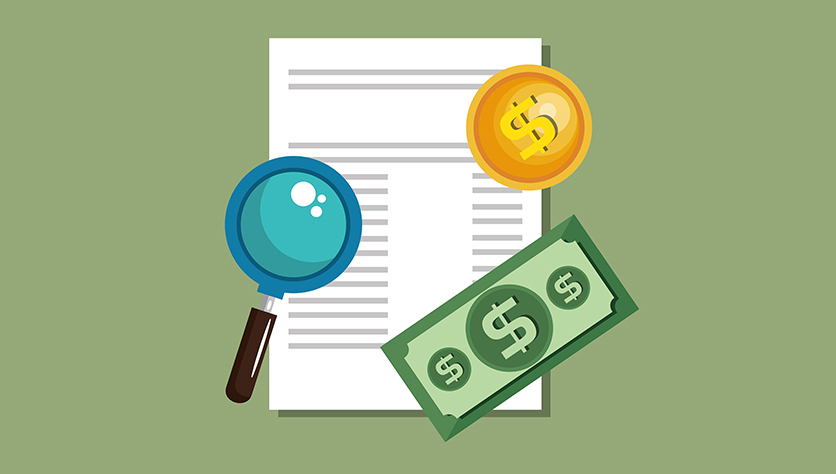Defamation is a serious issue that can cause lasting damage to an individual’s personal and professional reputation. In Canada, individuals who have been defamed have legal recourse to hold those responsible accountable. Defamation occurs when false statements are made about someone that harm their reputation, either through slander (spoken) or libel (written). If you are a victim of defamation, it’s essential to understand your legal rights, how to prove your case, and the steps you can take to seek justice. This guide outlines the process of holding someone accountable for defamation in Canada.
1. What is Defamation?
Defamation refers to making false statements about someone that damage their reputation. The statements must be communicated to a third party and must be either:
- Slander: Spoken defamation.
- Libel: Written defamation, which can include print media, online content, or social media.
For a statement to be considered defamatory, it must be false. Truth is a defense in defamation cases, meaning that if the statement is true, it cannot be deemed defamatory. The statement must also cause harm to the person’s reputation, and it must have been made either negligently or with actual malice, depending on the circumstances.
2. Types of Defamation in Canada
Defamation can occur in various forms. In Canada, the most common types of defamation include:
- Personal Defamation: Attacks on an individual’s character, profession, or personal life.
- Business Defamation: False statements that damage the reputation of a business or its employees.
- Internet Defamation: Online defamation, often seen on social media platforms, blogs, or websites.
The legal principles and remedies for defamation remain the same, whether it occurs offline or online, though online defamation often involves additional complexities due to anonymity and the wide reach of the internet.
3. Elements of a Defamation Claim in Canada
To succeed in a defamation lawsuit in Canada, you must prove the following key elements:
- False Statement: The statement must be false. If the statement is true, it is not defamation.
- Publication: The defamatory statement must have been communicated to at least one other person besides you and the defendant.
- Harm: You must show that the statement caused damage to your reputation, whether it led to personal distress, professional harm, or financial losses.
- Fault: In Canadian law, the level of fault depends on whether you are a public figure or a private individual. Private individuals must show that the defendant was negligent in making the false statement. Public figures, on the other hand, must prove “actual malice,” meaning the defendant made the false statement knowing it was false or with reckless disregard for the truth.
4. Steps to Take After Being Defamed
If you believe you’ve been defamed, taking prompt action is crucial to protect your reputation. Here’s what you should do:
- Document the Defamatory Statements: Collect evidence of the defamatory statement. This includes saving screenshots of social media posts, emails, or other forms of communication that contain the false information.
- Assess the Damage: Consider the impact the defamation has had on your personal life, professional reputation, and finances. Have you lost work opportunities, relationships, or income as a result?
- Attempt to Resolve the Issue Informally: Before pursuing legal action, you may want to try resolving the issue directly with the person who defamed you. You can request a retraction or an apology. In many cases, the defamer may agree to remove the false statement and offer a public apology, which can restore your reputation without the need for a lawsuit.
5. Sending a Demand Letter
If informal attempts to resolve the issue fail, you may choose to send a formal demand letter to the person who defamed you. A demand letter is a legal document that requests the defamer to retract their statement, issue an apology, and/or compensate you for damages caused by the defamation. It should include:
- A clear description of the defamatory statement.
- A request for retraction or apology.
- A warning that legal action will be taken if the issue is not resolved.
Sending a demand letter often encourages the defamer to correct their actions without going through lengthy court proceedings.
6. Mediation and Alternative Dispute Resolution (ADR)
Mediation is a form of alternative dispute resolution (ADR) where a neutral third party helps both the claimant and the defendant reach an agreement. Mediation can be a less expensive and quicker way to resolve a defamation claim without going to court. If both parties are open to negotiation, a mediator can help facilitate a resolution that benefits both sides. If mediation fails, you can proceed with a lawsuit.
7. Filing a Defamation Lawsuit
If the defamation continues and cannot be resolved through mediation or other informal means, you may need to file a defamation lawsuit. A defamation lawsuit in Canada is a civil action that can result in financial compensation for damages to your reputation, as well as other potential remedies.
To file a defamation lawsuit, you must:
- Consult with a Defamation Lawyer: An experienced defamation lawyer can evaluate the merits of your case, guide you through the legal process, and represent you in court.
- File a Statement of Claim: This is the formal document that starts the lawsuit and outlines the defamatory statement, the harm caused, and the relief sought (retraction, damages, etc.).
- Proceed with Legal Discovery: Discovery is the process in which both sides exchange information and evidence. It may include witness testimony, documents, and other relevant materials.
- Court Hearing: If the case goes to trial, both parties will present their evidence before a judge (or jury). The judge will then decide whether defamation occurred and determine any damages.
8. Possible Defenses Against Defamation
When defending against a defamation claim, the defendant may raise several defenses, including:
- Truth: If the statement is true, it is not defamation.
- Opinion: Defamation claims cannot be made for opinions, only for false statements presented as facts.
- Privilege: In certain cases, individuals are protected from defamation lawsuits due to “privilege.” This can apply to statements made in court, legislative proceedings, or in the media.
- Consent: If you gave the defendant permission to make the statement, you may not be able to pursue a defamation claim.
9. Types of Damages in Defamation Cases
If you win your defamation case, you may be entitled to various types of damages:
- Compensatory Damages: These are intended to compensate you for the harm caused by the defamation, including damage to your reputation, emotional distress, and financial loss.
- Punitive Damages: If the defamation was particularly egregious or malicious, the court may award punitive damages, which are designed to punish the defendant and deter others from engaging in similar behavior.
- Special Damages: If you can demonstrate that the defamation directly resulted in specific financial losses (such as lost income or job opportunities), you may be entitled to special damages.
10. Protecting Your Reputation in the Future
While you can’t always prevent defamation, there are steps you can take to protect your reputation:
- Monitor Your Online Presence: Regularly check your name online and set up alerts for mentions of your name or business.
- Respond Professionally: If defamatory content appears online, respond calmly and professionally. In many cases, a polite, factual response can help to clear up misunderstandings.
- Use Non-Disclosure Agreements (NDAs): In business and sensitive work situations, ensure that confidentiality agreements are in place to prevent the unauthorized release of damaging information.
11. Conclusion
Defamation can have a lasting impact on both personal and professional life, but the legal system in Canada provides strong protection for individuals whose reputations are harmed by false statements. If you have been defamed, taking prompt action is essential to hold the responsible party accountable. By documenting the defamatory statement, seeking legal advice, and following the legal process, you can protect your reputation, seek financial compensation, and ensure justice is served. Whether through direct negotiation, mediation, or a defamation lawsuit, you have several avenues to pursue a defamation claim and recover your reputation.
Useful information

Télétravail au Canada en 2025 : droits des employés et obligations des employeurs
Le télétravail est devenu une composante essentielle du monde du travail au Canada. Depuis la pandémie de COVID-19, ce mode d’organisation s’est institutionnalisé, incitant les entreprises et les gouvernements à repenser la législation, la gestion RH et l’équilibre travail-vie privée. Selon Statistique Canada, près de 30 % des Canadiens travaillaient régulièrement à distance en 2024, […]

What to Do If You Become a Victim of Fraud in Canada?
Fraud is a growing concern in Canada, with thousands of people affected each year. Whether you’ve been targeted by an online scam, identity theft, or a financial scheme, it’s essential to act quickly to minimize the damage and protect your legal rights. Fraud Statistics in Canada (2023) Type of Fraud Reported Cases Estimated Losses Annual […]

How to Legally Recover a Debt in Canada
Recovering a debt can be a challenging and frustrating process, but understanding your rights and the legal options available can make a significant difference. In Canada, there are several steps you can take to recover a debt, whether you are an individual or a business trying to collect money owed to you. From negotiating with […]

Unlawful Termination and Reinstatement in Canada: Your Rights
Unlawful termination is one of the most stressful and emotionally challenging experiences a worker can face. Whether it’s because of discrimination, retaliation, or breach of contract, the impact can be profound. Fortunately, in Canada, employees are protected by robust labor laws designed to prevent unlawful dismissal and provide options for reinstatement or compensation. If you […]

What to Do After a Car Accident in Canada: A Step-by-Step Guide
Car accidents, or as commonly referred to in Canada, “collisions” or “car accidents,” are an unfortunate reality on the road. In the event of a car accident, it’s important to stay calm and know exactly what steps to take. Whether the crash is minor or more serious, taking the right actions can help protect your […]
